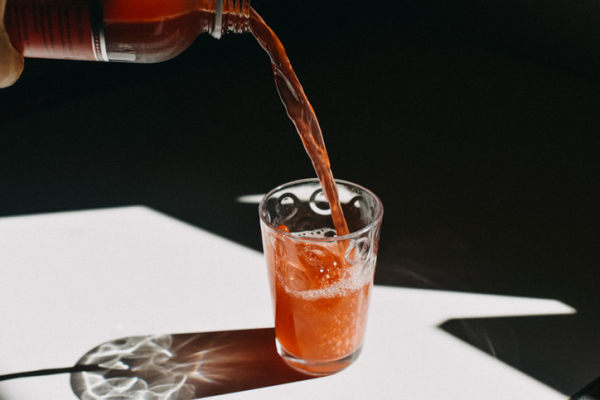
A tremendous buzz surrounds collagen drinks and supplements, as celebrities and influencers tout miraculous benefits for skin, hair, and nails. Since the collagen in our bodies provides crucial support for these tissues, it seems plausible that consuming collagen might lead to lush locks and a youthful glow. But what does the science say?
What is collagen?
Collagen is a major structural protein in our tissues. It’s found in skin, hair, nails, tendons, cartilage, and bones. Collagen works with other substances, such as hyaluronic acid and elastin, to maintain skin elasticity, volume, and moisture. It also helps make up proteins such as keratin that form skin, hair, and nails.
Our bodies naturally produce collagen using the amino acids from protein-rich or collagen-rich foods like bone broth, meat, and fish. But aging, sun damage, smoking, and alcohol consumption all decrease collagen production.
Collagen drinks and supplements often contain collagen from many different sources, such as fish, cattle, pigs, or chicken. Typically, they contain peptides, short chains of amino acids that help make up essential proteins in the body, including collagen itself and keratin.
What does the science say about collagen drinks and supplements?
Research on skin includes:
- A review and analysis of 19 studies, published in the International Journal of Dermatology, that had a total of 1,125 participants. Those who used collagen supplements saw an improvement in the firmness, suppleness, and moisture content of the skin, with wrinkles appearing less noticeable. That sounds promising, but it’s unclear if these skin improvements were actually due to collagen. Most of the trials used commercially available supplements that contained more than collagen: vitamins, minerals, antioxidants, coenzyme Q10, hyaluronic acid, and chondroitin sulfate were among the additional ingredients.
- A few randomized, controlled trials (see here and here) show that drinking collagen supplements with high amounts of the peptides prolylhydroxyproline and hydroxyprolylglycine can improve skin moisture, elasticity, wrinkles, and roughness. But large, high-quality studies are needed to learn whether commercially available products are helpful and safe to use long-term.
Hardly any evidence supports the use of collagen to enhance hair and nails. One small 2017 study of 25 people with brittle nails found that taking 2.5 grams of collagen daily for 24 weeks improved brittleness and nail growth. However, this small study had no control group taking a placebo to compare with the group receiving collagen supplements.
There haven’t been any studies in humans examining the benefits of collagen supplementation for hair. Currently, no medical evidence supports marketing claims that collagen supplements or drinks can improve hair growth, shine, volume, and thickness.
Should you try collagen supplements or drinks?
At this time, there isn’t enough proof that taking collagen pills or consuming collagen drinks will make a difference in skin, hair, or nails. Our bodies cannot absorb collagen in its whole form. To enter the bloodstream, it must be broken down into peptides so it can be absorbed through the gut.
These peptides may be broken down further into the building blocks that make proteins like keratin that help form skin, hair, and nails. Or the peptides may form collagen that gets deposited in other parts of the body, such as cartilage, bone, muscles, or tendons. Thus far, no human studies have clearly proven that collagen you take orally will end up in your skin, hair, or nails.
If your goal is to improve skin texture and elasticity and minimize wrinkles, you’re better off focusing on sun protection and using topical retinoids. Extensive research has already demonstrated that these measures are effective.
If you choose to try collagen supplements or drinks, review the list of ingredients and the protein profile. Avoid supplements with too many additives or fillers. Products containing high quantities of prolylhydroxyproline and hydroxyprolylglycine are better at reducing wrinkles and improving the moisture content of skin.
Consult your doctor before starting any new supplements. People who are prone to gout or have other medical conditions that require them to limit protein should not use collagen supplements or drinks.
The bottom line
Large-scale trials evaluating the benefits of oral collagen supplements for skin and hair health are not available. If you’re concerned about thinning or lackluster hair, brittle nails, or keeping skin smooth and healthy, talk to your doctor or a dermatologist for advice on the range of options.
It will also help to:
- Follow a healthy lifestyle and eat a balanced diet that includes protein-rich foods.
- If you smoke, quit.
- Limit alcohol to two drinks or less in a day for men or one drink or less in a day for women.
- Apply sunscreen daily and remember to reapply every two hours.
- Wear wide-brimmed or UV-protective hats and clothing when you’re spending a lot of time in the sun.
Follow Payal Patel on Twitter @PayalPatelMD
Follow Maryanne Makredes Senna on Twitter @HairWithDrMare
About the Authors

Payal Patel, MD, Contributor
Dr. Payal Patel is a dermatology research fellow at Massachusetts General Hospital. Her clinical and research interests include autoimmune disease and procedural dermatology. She is part of the Cutaneous Biology Research Center, where she investigates medical … See Full Bio View all posts by Payal Patel, MD 
Maryanne Makredes Senna, MD, Contributor
Dr. Maryanne Makredes Senna is a board-certified dermatologist at at Beth Israel Lahey Health, and assistant professor of dermatology at Harvard Medical School. Dr. Senna founded and directs the Lahey Hair Loss Center of Excellence and … See Full Bio View all posts by Maryanne Makredes Senna, MD



